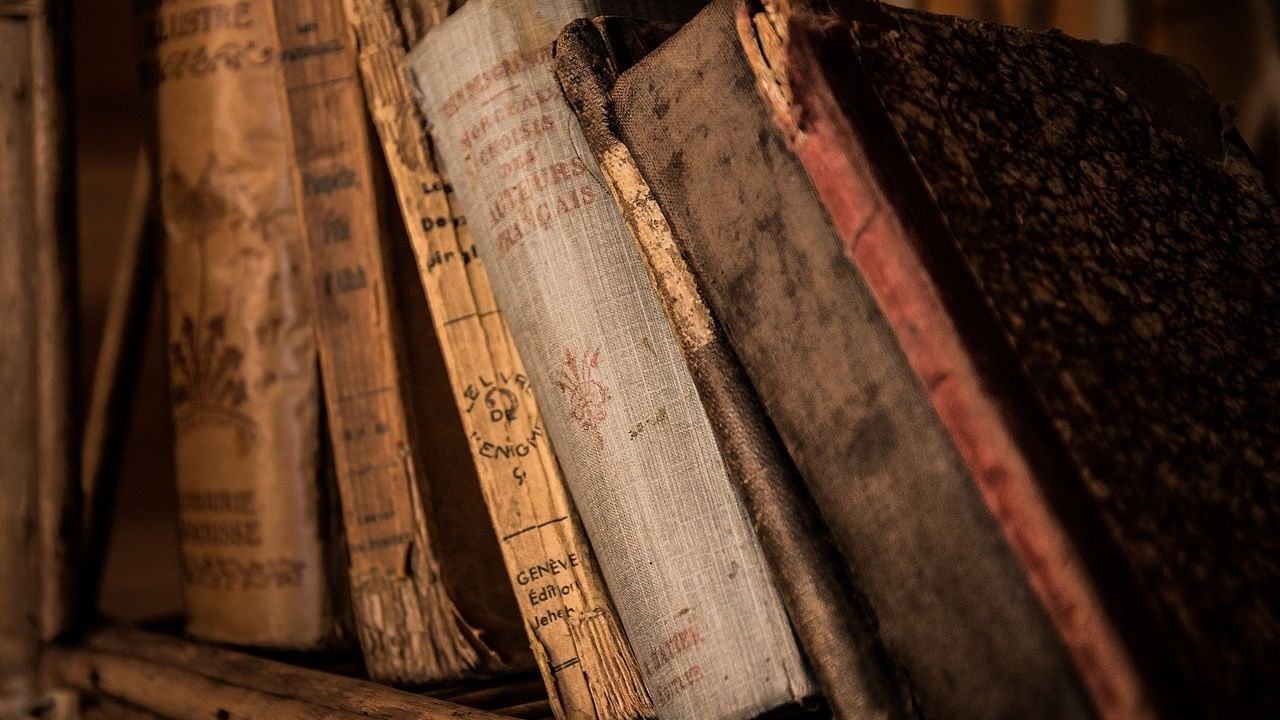
Representative image of books.
Credit: Pixabay Photo
My friend Sridhar called me to join him for the customary cup of lemon tea sharp at eleven. He had piled up on his table seven volumes of History of Dharmashastra by Mahamahopadhyaya Panduranga Kane. He was immersed at present in Volume Two, Part Two, which dealt with Deva Yajna, Archarigraha and Pranapratishte, among several other very intricate rituals.
Sridhar being a fastidious scholar, keeping the disposable paper cup aside said, “Even Homer nods”. I was able to guess why he was invoking the master critic Matthew Arnold. Before I opened my mouth to ask him, “What error has swum into your ken now?” he said, “Look here, the great P V Kane has used the terms ‘diameter’ and ‘diagonal’ as if they are interchangeable! Further his explanation of pradakshina is rather cumbersome; he has made a heavy weather of it”.
Sridhar would have continued to enumerate the redoubtable scholar Kane’s deviations had he not received an urgent call from home: “The gardener has come; don’t forget to buy manure on the way,” said his Srimati from the other end. Within a minute I received a call from my dharmapatni: “The milk vendor has not supplied curds today; buy a packet from Nandini booth while returning”. Both Sridhar and I were happy that we have mastered the mechanics of maintaining our domestic felicity by being prompt and obliging to our spouses.
Sridhar suddenly remembered a different domestic set up connected with Vachaspati Misra, the pupil of great Mandana Misra, of the tenth century and the husband of Bhamati. Vachaspati was a scholar completely dedicated to the writing of BrahmaSutras. He reluctantly married Bhamati only because his mother insisted that he should bid good bye to his single-blessedness. He completed his task taking seven years, during which period, his wife Bhamati served him without making any demands whatsoever.
After finishing his intellectual labour, Vachaspati Misra tells his wife, “As I had vowed, now I take Sanyas, and leave home”. He asks her, in turn, “What will you do when I am gone”. “Don’t worry about me. The same force which has sustained me all these years will continue to do so hereafter too. I am fortunate that I was able to serve you while you were writing an extraordinary book”. Vachaspati is deeply touched by her words and surrenders all his works at her feet and calls the corpus of his writing ‘Bhamati’ after her, so that everyone could remember her dedication.
When Sridhar stopped the narration of the saga of ‘unconditional love’, it was lunch time. Since we were no clones of Vachaspati, we got ready to go home, I reminding him of the manure and he reminding me of the curds.